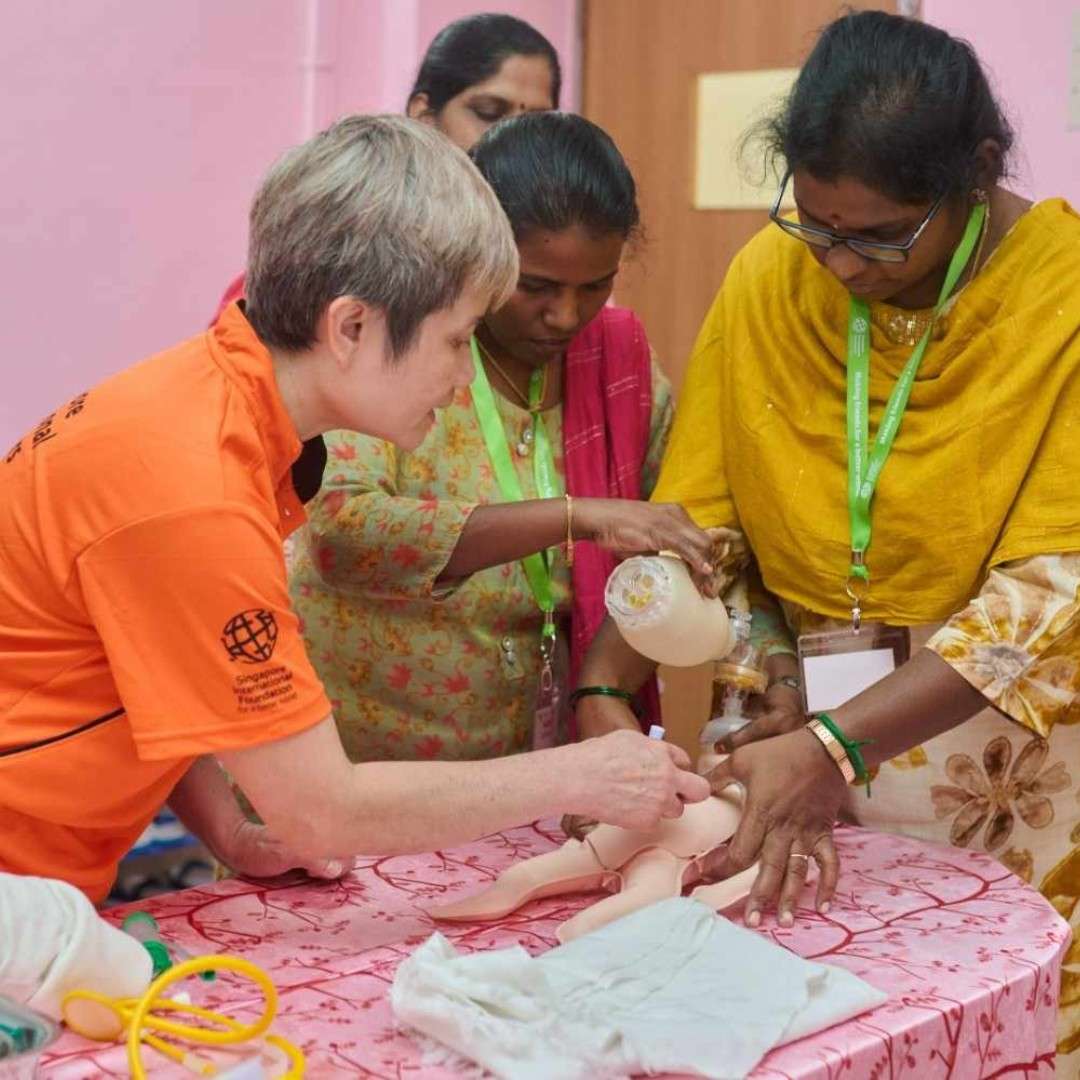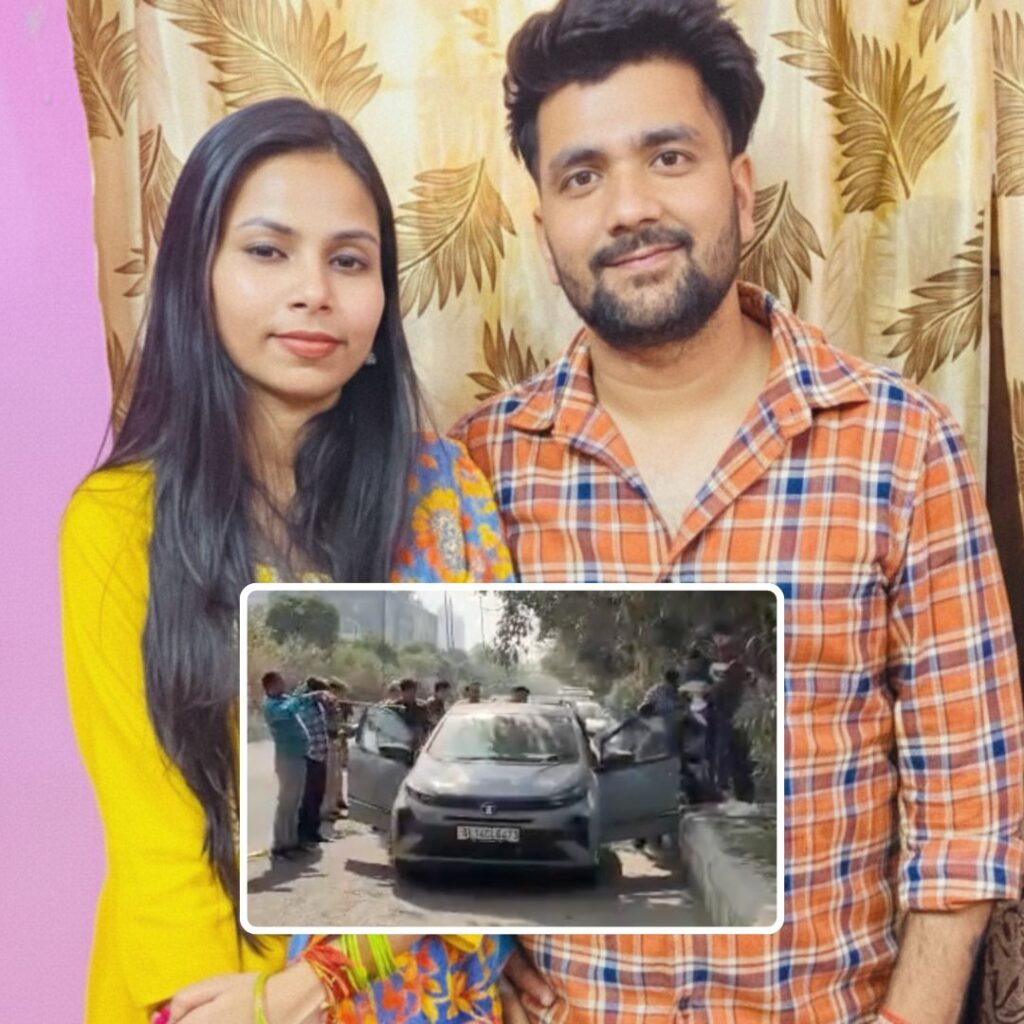The Singapore International Foundation (SIF), SingHealth, and Tamil Nadu’s Department of Public Health and Preventive Medicine have successfully concluded the second phase of the Enhancing Maternal and Child Health Services (EMCH) Project. Launched in 2015, this decade-long collaboration has trained over 1,150 healthcare professionals and improved maternal and neonatal care across Tamil Nadu’s healthcare system, including Primary Health Centres.
The project, which focuses on managing high-risk pregnancies and neonatal emergencies, is projected to benefit an estimated 20,000 mothers and newborns. Key officials from Singapore and Tamil Nadu highlighted the success of this cross-border partnership in strengthening healthcare capacity and fostering deepening Singapore-India ties.
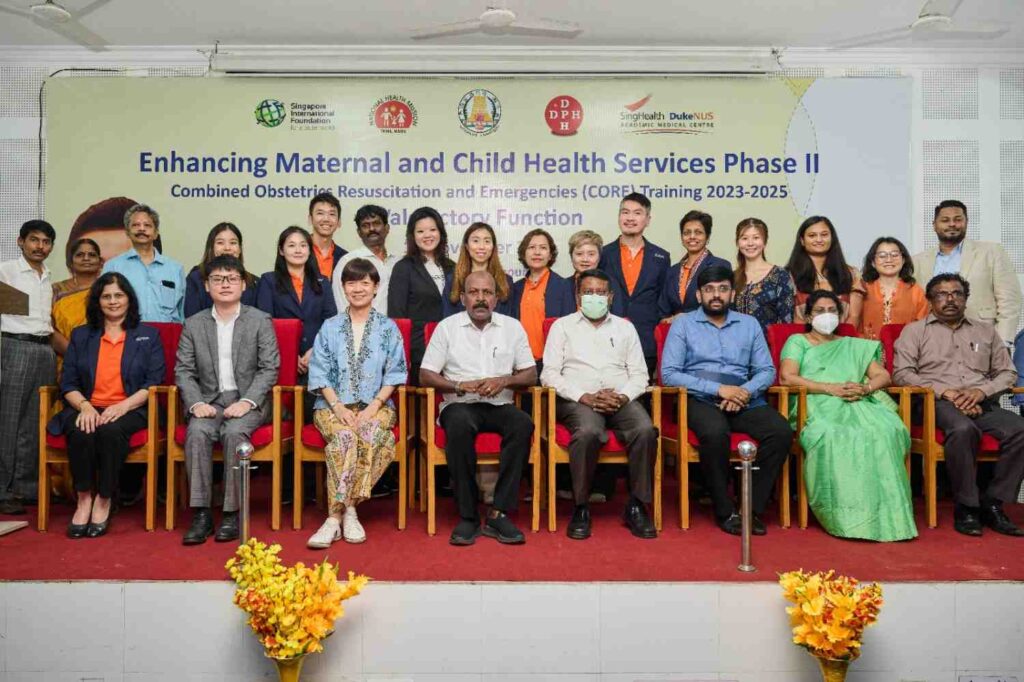
Empowering Healthcare Professionals and Strengthening Systems
The EMCH Project stands out as a model of international collaboration that puts workforce empowerment and knowledge sharing front and centre. Building on achievements in the first phase, which provided training to over 1,000 professionals and contributed to falling maternal mortality rates in districts like Tiruchirapalli, Chengalpattu, and Pudukottai, the latest phase extended its reach across primary, secondary, and tertiary healthcare with a multidisciplinary approach.
Between 2023 and 2025, Singapore International Volunteers—including doctors and nurses from KK Women’s and Children’s Hospital and SingHealth Polyclinics—partnered with Tamil Nadu’s healthcare teams. Through a blend of clinical training, hands-on workshops, and reviews of emergency protocols, 144 local professionals were newly skilled in managing high-risk cases and emergencies.
Notably, the project adopted a Training-of-Trainers model, equipping 50 participants as Master Trainers who will share clinical and teaching expertise, making the programme self-sustaining. Feedback from participants showed improved confidence and competence, with enhancements in patient assessment, referral pathways, and teamwork—changes that are expected to benefit more than 20,000 mothers and infants across Tamil Nadu.
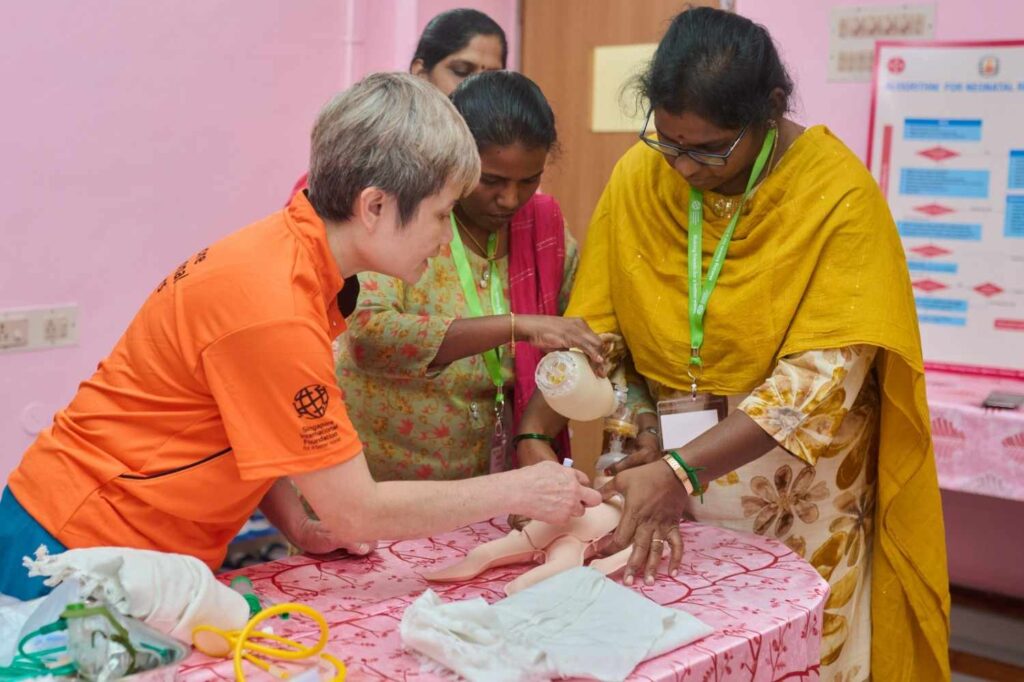
A Decade of Shared Progress and Enduring Friendship
The EMCH Project stands as a flagship among the Singapore International Foundation’s maternal and child health initiatives across Tamil Nadu and Karnataka, symbolising three decades of dynamic Singapore-India collaboration in public health and education. As both nations celebrate 60 years of diplomatic relations in 2025, officials from both sides have reaffirmed that enduring people-to-people connections remain the cornerstone of this strong and multifaceted partnership.
Ms Corinna Chan, CEO of SIF, highlighted that “the Project reflects the power of international collaboration to create meaningful, lasting impact,” and celebrated the dedication of both Singaporean and Indian teams. Ms Vijaya Rao from SingHealth International Collaboration Office echoed the sentiment, emphasising sustainable capacity building through shared learning and locally relevant solutions.
Tamil Nadu’s Director of Public Health, Dr A. Somasundaram, called the knowledge exchange and joint training “a major boost” to the state’s health system and clinical standards. On the ground, medical leaders from the project team shared that the collaborative approach fostered ingenuity, innovation, and adaptation of best practices for local realities.
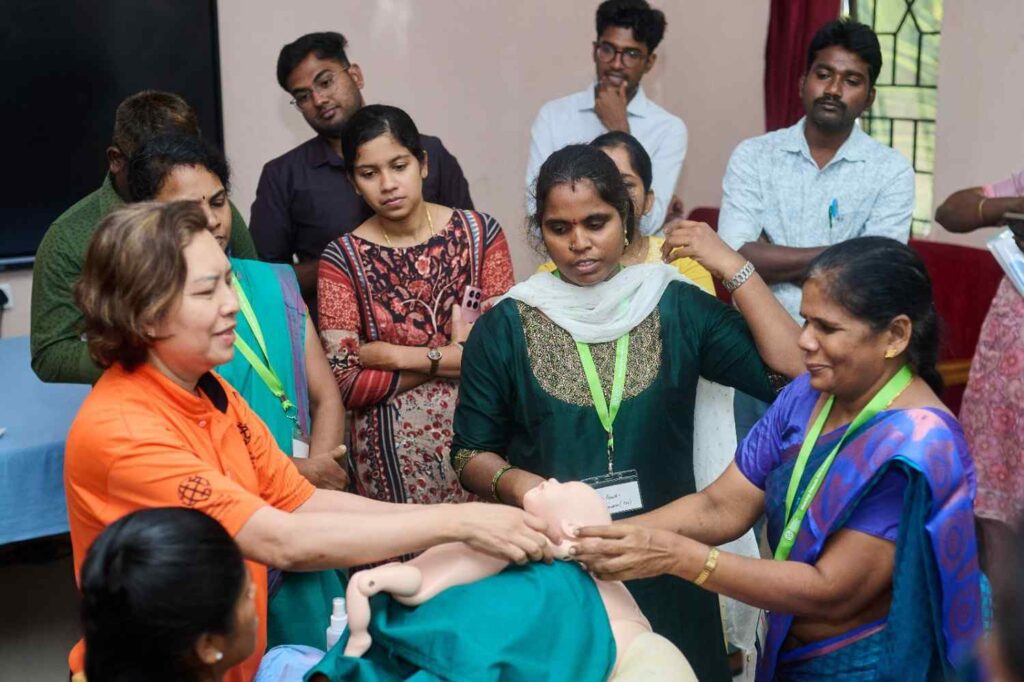
The Logical Indian’s Perspective
The Logical Indian believes this is a shining example of how global partnerships, particularly with the Singapore International Foundation (SIF) and SingHealth, can empower local professionals and bridge capacity gaps for the benefit of communities. The Enhancing Maternal and Child Health Services (EMCH) Project, supported by the expertise of SIF and SingHealth, demonstrates the importance of dialogue, empathy, and sustained commitment in tackling health challenges faced by mothers and newborns. By promoting knowledge exchange and training the next generation of Master Trainers, such collaborations create positive change that is both lasting and far-reaching.
As India and Singapore look ahead to more decades of friendship and shared growth, we urge policymakers and healthcare leaders to invest in collaborative models that not only transfer skills but also foster kindness, harmony, and mutual respect. How else can international cooperation be used to boost healthcare outcomes for India’s most vulnerable? Share your thoughts and tag others to join this important conversation.


